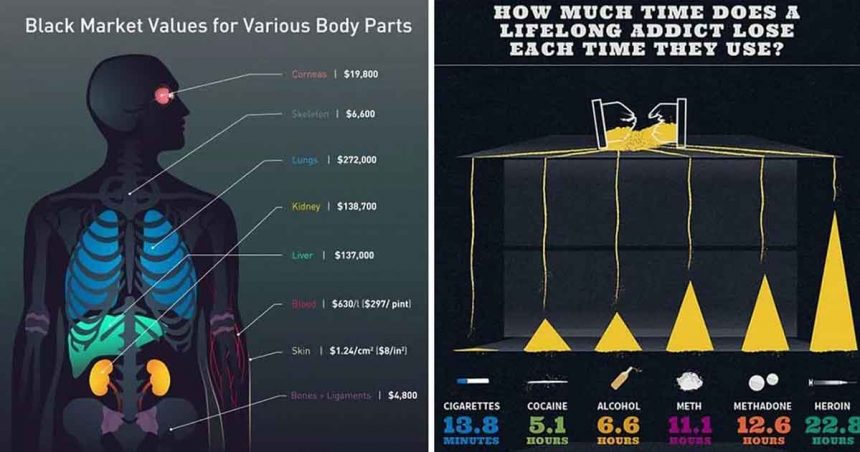Organ trafficking is a disturbing reality driven by urgent needs and dire circumstances, despite being illegal. The black market for organs thrives, with prices varying depending on the organ and region. This article delves into the estimated values of various organs on the black market, shedding light on the risks and ethical considerations involved in this high-stakes world.
Organ trafficking is a global issue fueled by the scarcity of legally available organs and the desperation of those in need. Approximately 20 people die each day in the US waiting for an organ transplant, leading some to explore illegal avenues to obtain or sell organs.
Kidneys are the most sought-after organs on the black market, with a market value of $200,000. In countries like India and China, kidneys fetch lower prices, ranging from $20,000 to $40,000, with donors receiving only a fraction of this amount.
The liver, valued at $157,000, is a precious organ due to its regenerative capacity and high demand for transplants. Hearts, worth $119,000 on the black market, offer a more affordable but illegal option for those in need.
Corneas, essential for vision, can fetch up to $30,000 on the black market. Unlike other organs, bone marrow can be legally sold for around $3,000 per gram, although finding a genetic match can be challenging.
The sale of human eggs, legal in the US, ranges from $5,000 to $50,000 based on various factors. Other organs like the small intestine, skulls with teeth, and blood also have black market values, highlighting the dark side of organ trafficking.
The black market raises ethical and legal concerns, as selling organs is illegal in most countries and poses serious risks to individuals. Unsolicited surgeries can lead to severe medical complications, including infection, organ rejection, and death.
Selling organs on the black market may seem like a quick financial fix, but the reality is filled with dangers and moral dilemmas. Advocating for legal and ethical solutions to organ shortages is crucial to prevent the exploitation and suffering of vulnerable individuals in need of transplants.






